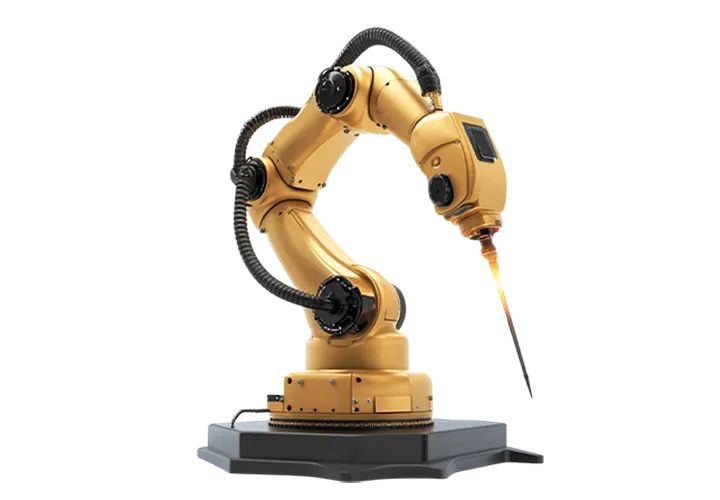
In this era of the AI revolution, automation has become a fundamental factor driving industrial operations- to make it more efficient and precise and to reduce the cost involved. Automation projects need the best robot integrators suited to their tasks to integrate seamlessly with the existing manufacturing processes. In this blog, we discuss the critical factors to consider before choosing a robot integrator so that you can invest in the right partner for your automation journey.
Understanding Your Automation Needs
An essential part of selecting a robot integration service provider begins with understanding the specific automation needs of your organisation. Collect all information about tasks that need to be automated, your business’s challenges, and how your team expects to benefit from using robots. Some critical questions you need to ask include:
- What type of processes need automation?
- What are the expected improvements in productivity and quality?
- What level of customisation is required for seamless integration?
- Will the robots need to work alongside human employees (collaborative robotics)?
- What is the expected return on investment (ROI) from automation?
- How will automation affect the existing workflow and employee responsibilities?
Experience and Industry Expertise
The industrial robotic integrator you choose depends on the experience required for your project in that industry. An experienced robot integrator understands that automation needs vary across industries, as they have different best practices and even regulatory standards that apply to that sector.
For example, the requirements of an automobile manufacturing company will differ significantly from those of a food and beverage production plant. You should ask the integrator the following questions to understand their experience better:
- Year of experience with robotic integration services
- Expertise in the specific industry
- Knowledge of regulatory compliance requirements
- Experience with previous clients
- Partnerships with robot manufacturers and technology providers
Also, check out: Top Industrial Robot Manufacturers in India
Technical Capabilities
Robot integrators must have extensive technical expertise to design, program, and integrate robotic systems efficiently.
Here are some factors to stay informed about to check their expertise with the technical processes:
- Experience with different robotic brands and models
- Knowledge of coding and programming control systems
- Use of simulation tools to optimise robot performance before it is implemented
- Experience with AI-powered robotics to fulfil advanced automation needs
- Bandwidth of the integrator when it comes to offering support for both small-scale and large-scale integration projects
- Ability to design a custom end-of-arm tooling (EOAT) for specialised tasks if needed
Support and Maintenance
Maintenance support for robotic automation is a long-term and necessary commitment. Regular maintenance helps preserve the efficiency of system operations. A reliable industrial robot integrator:
- Offers comprehensive training for your team
- Plans and executes regular maintenance
- Has quick response time if troubleshooting is required
- Has easy access to spare components and software updates for installed programs
- Sets up the system for remote monitoring and diagnostics to plan maintenance ahead of time
- Offers on-site support in case of critical system failures
- Has a dedicated customer support team with 24/7 assistance
Compliance with Safety Standards
An industrial environment should maintain workplace safety as its top priority. Safety regulations must be strictly complied with, as there can be no exceptions.
A responsible robotic integrator:
- Conducts strict safety checks before implementing protective processes.
- Ensures the integration process meets all requirements, including domestic and international safety regulations.
- Conducts safety education training for employees
- Incorporates safety fail-safes and emergency stop functions in the system
- Ensures that the software has a safety control that stops machinery in emergencies.
- Knows about OSHA, ANSI and ISO safety standards and practices them strictly
- Ensures that functioning safety barriers are set up to ensure employee safety.
Cost and ROI Evaluation
While automation promises long-term savings, the upfront cost of robot integration can be significant. Businesses should:
-
Request detailed cost breakdowns from integrators.
-
Compare costs of standard vs. customized solutions.
-
Assess the total cost of ownership (equipment, training, support, spare parts).
-
Estimate ROI timelines based on productivity gains and reduced downtime.
A transparent cost-benefit analysis helps ensure you are not only investing in automation but also in sustainable profitability.
Scalability and Future-Proofing
Automation needs evolve as businesses grow. A strong robot integrator should offer:
-
Scalable solutions that can expand with your production demands.
-
Compatibility with Industry 4.0 technologies like AI, IoT, and digital twins.
-
Modular robotic systems that allow upgrades without overhauling the entire setup.
Choosing an integrator who plans for the future ensures your automation investment remains relevant for years to come.
References and Case Studies
A reliable robot integrator should be able to demonstrate proven success stories. Before deciding:
-
Ask for case studies of previous projects.
-
Request client references to understand customer satisfaction.
-
Look for certifications or partnerships with top robot manufacturers.
This provides reassurance that the integrator has real-world experience in solving similar challenges.
Training and Workforce Integration
Automation is only as effective as the people operating it. A good integrator should:
-
Provide hands-on training programs for operators and technicians.
-
Ensure seamless collaboration between robots and human employees.
-
Offer ongoing support to upskill staff as technologies evolve.
This not only boosts productivity but also reduces resistance to automation within the workforce.
Conclusion
The robotic integration services you choose depend on an automation system’s efficiency, reliability, and safety. Consider all factors that can potentially impact the system’s workings, not just in the present but also long-term. In addition, the integrator must have the required technical skills, safety protocol knowledge, implementation expertise, and relevant industry experience before working with them.
